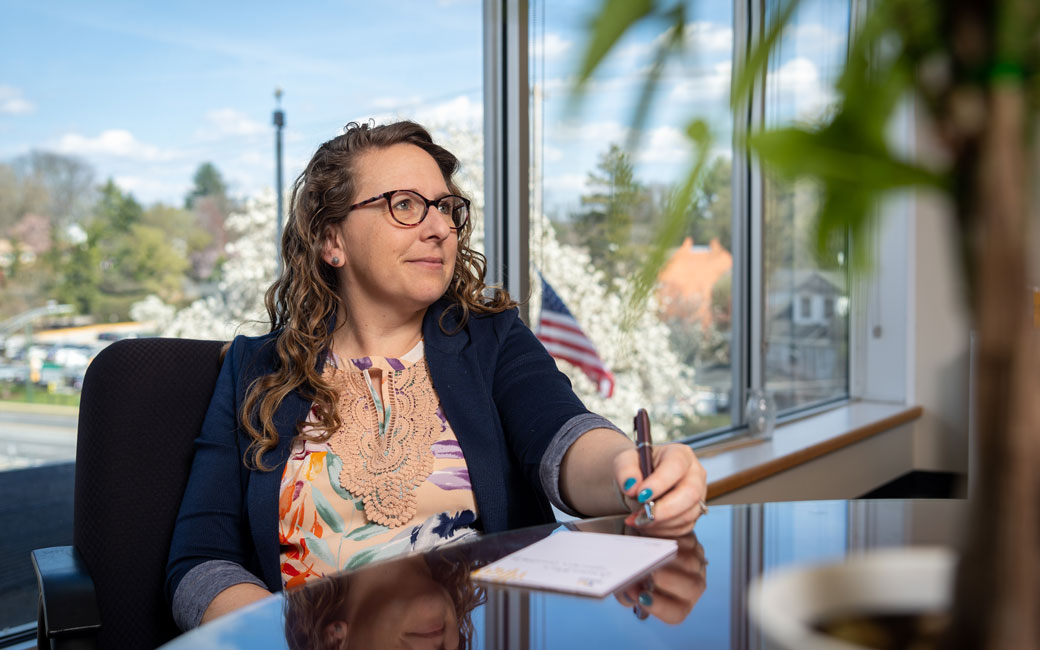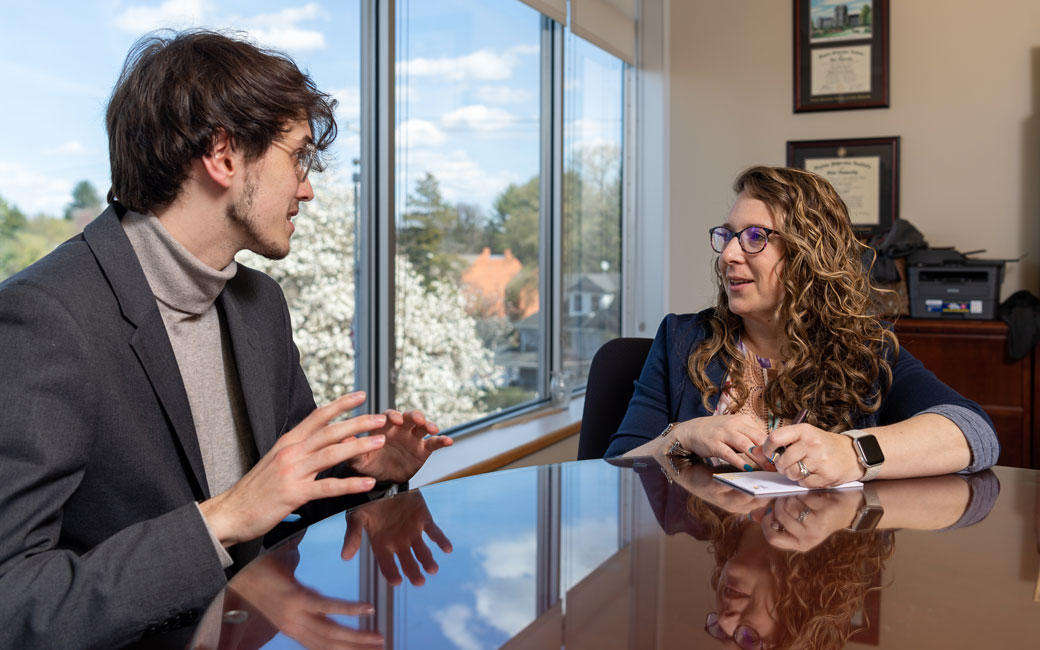Building community and accountability for all
A Q&A with Alison Peer, TU’s associate dean of students
By Kyle Hobstetter on April 7, 2023

Alison Peer’s passion for higher education started when she was in college, working as a resident assistant. She says it felt rewarding to help other young adults through a challenging life transition.
That passion followed into her professional career. She is in her 10th year at Towson University, and in December 2022 she was named associate dean of students.
“I became drawn to working with students who were struggling with decision-making because I saw an opportunity to have a significant impact on the trajectory of their lives,” Peer says. “This work requires I help a student, who may be at their very lowest point, find ways to learn and grow from that experience, so they can achieve their highest potential.”
While she was director of TU’s Office of Student Conduct & Civility Education, it underwent a name change to the Office of Student Accountability & Restorative Practices (SARP).
SARP is responsible for responding to all reports of potential policy violations and administering the accountability process for students. The office facilitates a traditional disciplinary process alongside an alternative resolution process, which centers the parties most involved in the harm caused to determine how to make it right. SARP also educates the campus community about things like conflict resolution, decision-making and being a positive contributor to the TU community.
Peer sat down with Towson University and discussed the changes to her office as well as her new position of associate dean of students.
What prompted the name change?
"The office previously only offered a traditional disciplinary process when students
were accused of violating the Code of Student Conduct. In summer 2020, we wrote an
alternative resolution process (ARP) into the Code of Student Conduct and broadened
the options for students. We also began offering more education about restorative
practices and the possible use of that approach in other areas of the university.
Ultimately, the introduction of the ARP led to a need for a name change because the
phrase student conduct no longer fully represented the office’s functions. The term
accountability acts as an umbrella for both processes offered. Whether a student uses
the traditional disciplinary process or elects to use the ARP, they are participating
in an accountability process. The team also wanted the phrase restorative practices
in the office’s title to showcase its role in educating and engaging the campus community
in the accountability process."
What do the words restorative practices mean, and how does this relate to a culture shift in higher education?
"Restorative practices refer to an approach to community building and accountability. In essence, to be restorative is to do things with people instead of to them or for them. When it comes to community building, being restorative requires inclusion of all voices to develop expectations or norms.
The same goes for responding to harm that has been caused. A restorative approach calls for a community-based accountability process where the voices of the parties who are most impacted by the harm can be present and included to determine what should happen in response to that harm. This approach aligns with our desire as an institution to be more inclusive and create a campus where all members feel a sense of belonging. Higher education and Towson University are more diverse than ever.
Restorative practices offer the opportunity for us to reimagine our campuses as places that are designed for our community needs instead of requiring our communities to fit into a rigid system that may not be supportive of their needs."

Why is it important to have this office on campus, and how can students use its resources?
"The Office of Student Accountability & Restorative Practices plays a key role in supporting the success of the campus community by ensuring students abide by expectations. This promotes a safe and supportive learning and living environment for all students. The office has always provided educational opportunities to students who may violate the expectations of the community. Now, it also offers a chance for the community to engage in the accountability process in a powerful way. Students can seek more information about our office, submit reports on our website or see what we are up to through our Instagram @tu_studentaccountability."
How would you describe what you do in your new role?
"I still oversee SARP and heavily support its work but at more of a distance. As its director for more than six years, I provided visioning and leadership and moved the department’s functions to where they are now. My role as the associate dean of students, though much expanded from my former work, is still to champion the implementation of restorative practices within SARP and beyond.
I work with students who are experiencing challenging life circumstances that are interfering with their time at TU and try to get them connected to the resources they need to regain stability and find success. I oversee the student accountability and restorative practices area as well as the student outreach and support area and provide guidance and advocacy for both departments’ needs. I also provide support for the associate vice president and dean of students in responding to student emergencies and high-level student needs."